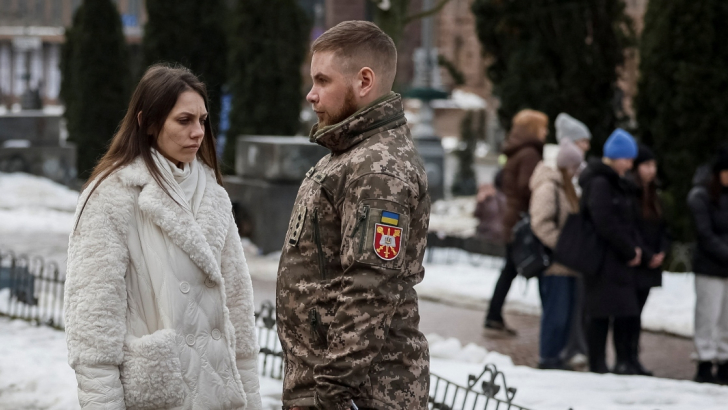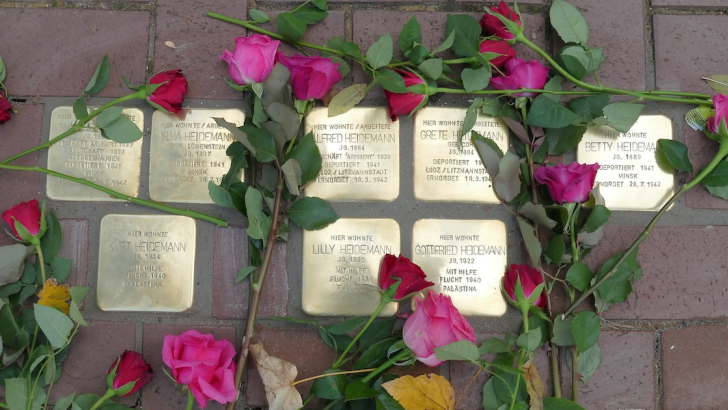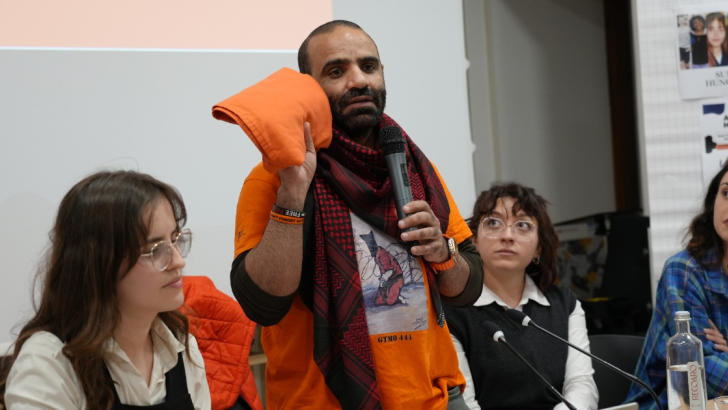Writing Under the Drones: An Interview with Andrei Kurkov
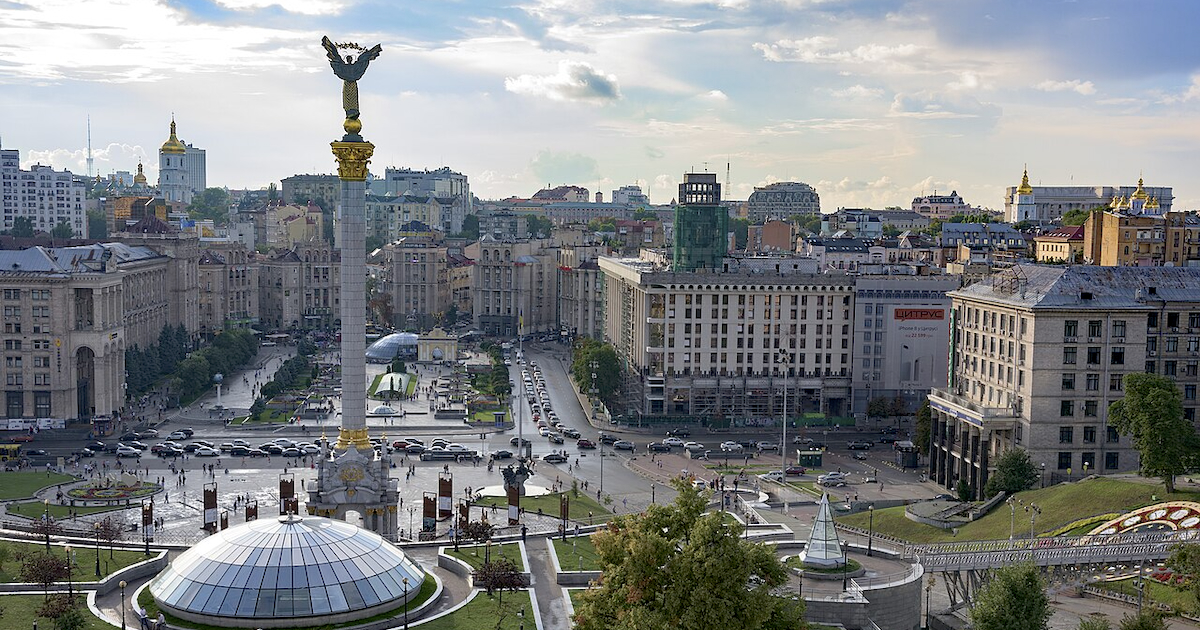
Maidan, Kyiv
“We didn’t sleep well last night, because of the sirens…” That’s how Andrei Kurkov responds from Kyiv to the innocent question, “How are you?” And just like that, the conversation takes a more serious turn—despite his smile and the subtle sense of humor that runs through much of the Ukrainian writer’s reflections. We interviewed Kurkov on the occasion of the Italian release of his latest book, La nostra guerra quotidiana (Our Daily War, translated by Elisabetta Venturini and published by Keller), in which he draws on his wartime diaries to describe what it means to live with war as a daily presence.
Born in Leningrad—now St. Petersburg—in 1961, Andrei Kurkov is one of the most internationally acclaimed Ukrainian authors. He writes primarily in Russian, and his books have been translated into dozens of languages. His novels mix irony, melancholy, and surrealism to portray the contradictions of the post-Soviet space and the fragility of modern life; as in the delightful Death and the Penguin, featuring the restless Viktor and his odd but endearing pet penguin, Misha.
Since the beginning of the full-scale invasion of Ukraine by the Russian army in February 2022, however, Kurkov has also taken on the role of a sharp-eyed observer and civil voice of his country. His latest book is both a personal and collective diary, written between Kyiv and other Ukrainian cities where he took refuge with his family. Among air raid sirens, power outages, and unexpected moments of calm, Kurkov tells how war creeps into the smallest gestures and transforms daily life into something suspended, precarious, yet deeply human. In this interview, he speaks to us about writing in wartime, the role of culture in a wounded nation, and how to tell the story of Ukraine without rhetoric—through clarity and compassion.
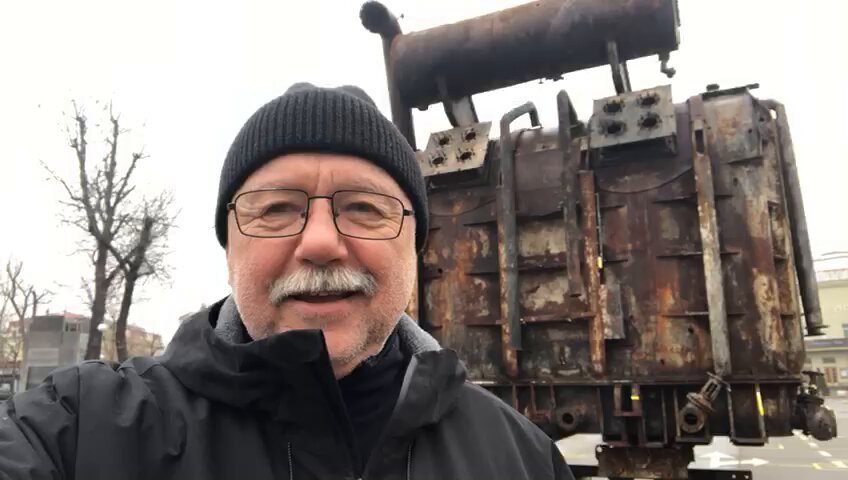
Andrei Kurkov
In “Our Daily War”, you describe not only painful events, but also moments of solidarity, creativity, and small acts of everyday resistance. Is there a particular episode you feel especially connected to and would like to share with us?
«There are lots of episodes, but the first thing that comes to my mind is the story of the Ukrainian Association of Winemakers and Sommeliers and how they were fighting against the Russian Association of Sommeliers. They practically stopped Russia from exporting and selling Crimean wine as Russian wine because Russia was trying to send it to be sold in Moldova and Kazakhstan, as Europe didn’t accept it. Then the Ukrainian Association created a petition to freeze the membership of the Russian one in the Association de la Sommellerie Internationale.
This is a story about the economy, but it’s also a story about culture. The person behind the activities of the Ukrainian Association, Ivan Percheklii, is in the army. Actually, Percheklii was engaged in this “wine war” when he was wounded and was in a Kyiv hospital. He is the vice president of the Ukrainian Association, but he joined the army at the very beginning of the full-scale invasion. Of course, he couldn’t do much until the moment he was wounded on the front line and was taken to the hospital, then he started a new type of war on behalf of the winemakers and sommeliers. He is now back in the army and at the front line, but I met him personally in Kyiv when he was wounded, and we are still in touch.»
After the full-scale invasion began, you mentioned that working on fiction became difficult. Do you think the war has changed not just the subjects you write about, but also your way of writing?
«The war changes your perception of life, so your priorities and values change. I’m a very different person now from who I was before 2022, in many ways. For example, as a child I was a collector; I had been collecting stamps, ancient coins, badges, old postcards, ancient vinyl records, etc. But after the beginning of the full-scale invasion, I lost my understanding of the value of anything material. When we had to leave our apartment, I just thought that I had said goodbye to everything we left behind. I still have this feeling that the material world doesn’t mean much anymore: neither my collections, nor our apartment, nor other things.
Also, for me, violence was never acceptable in literature. Now it is acceptable because it is part of our daily life, and because I watch the news on YouTube and Telegram, and almost all the videos are filled with violence. I recently managed to finish the novel I started before February 2022 but couldn’t write for two and a half years; finally, last November, I finished it. There is one very violent episode at the end of this novel—an episode I would never have written before the war. So now I don’t have a problem writing scenes that are violent, bloody, and shocking.»
What role can writers, intellectuals, and artists play during wartime?
«There are writers who are public figures and others who are not public figures, who never want to be seen or to be present. In Ukraine, almost every public writer became very active politically and socially with the beginning of the war. Many of them started fundraising for the army or helping to keep up the spirit of the civilian population, trying to motivate people. It was also very important in the first year and a half that some writers created articles to the international media about Ukrainian history and the history of Russian-Ukrainian relations. They were actually doing some counter-propaganda because Russia is falsifying history and spreading falsified narratives everywhere.
In the West, people did not know much about Ukraine and our history; they didn’t know that Ukraine was actually never a kingdom but something like a republic back in the 17th century. Ukrainians were choosing their leaders; they didn’t have a royal family. That’s why they prefer freedom to stability. That’s why the political life in Ukraine is actually quite like Italy’s: we have more than 400 political parties registered with the Ministry of Justice. Ukraine is also the motherland of anarchy, since the biggest army of anarchists was set up here in 1918 by Nestor Makhno.»
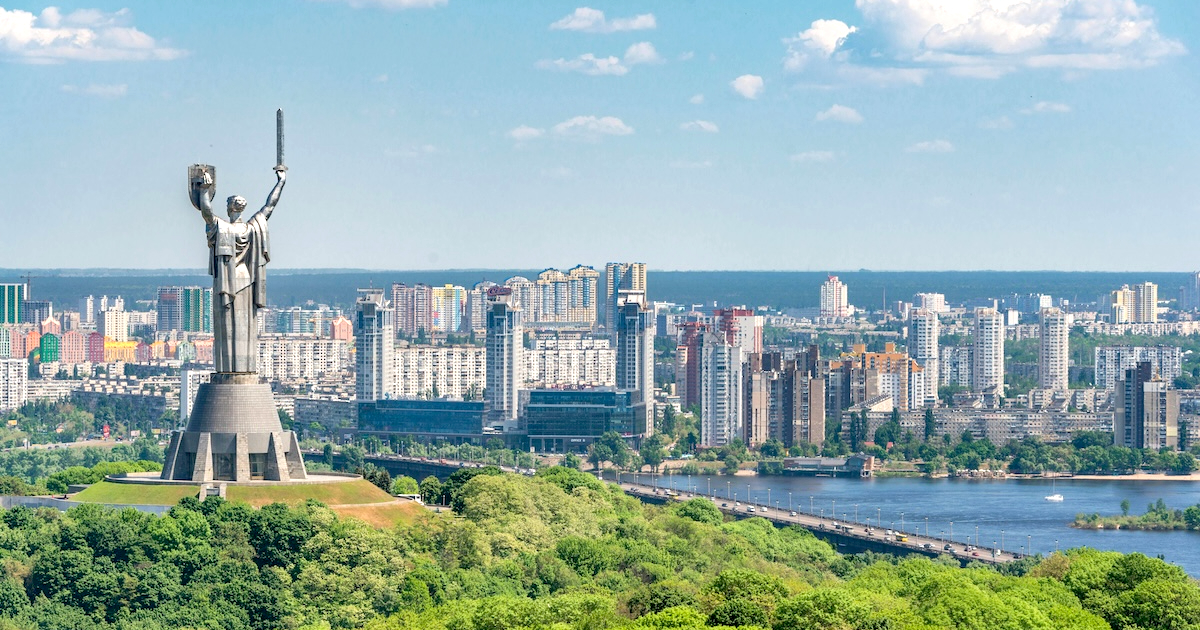
Kyiv panorama
What is the relationship between memory, identity, and language in the Ukrainian resistance to Russian aggression?
«I mentioned that Ukrainians are very often anarchists. So, if you discuss the question of identity with every Ukrainian, you will get slightly different ideas of identity. First of all, one should understand that in Soviet times, the word Ukrainian meant someone belonging to the Ukrainian ethnic group—like Armenians, Azerbaijanis, and so on. When Ukraine became independent, the word Ukrainian came to mean a citizen of Ukraine of any origin, but for some intellectuals, ethnic Ukrainians are considered more Ukrainian than non-ethnic ones.
But in general, Ukrainian identity (not the ethnic, but the political one) was reconfirmed and reconsolidated by the full-scale invasion. This invasion actually changed those Ukrainians who were more focused on ethnic identity; they became more flexible and began to accept Ukrainians of other origins. Now, for them, the main marker is that the person speaks or knows the Ukrainian language, understands our history, and considers himself or herself a patriot of Ukraine.»
Your writing depicts life in Ukraine as a constant adaptation, but it also conveys exhaustion and the struggle to remain hopeful. What do you think—or hope—for Ukraine’s future?
«I hope that Europe will continue to support us and help us defend the independence and sovereignty of Ukraine. Because it’s difficult to imagine in the near future that Ukraine can liberate the occupied territories, but what is under the control of our government, of course, should be defended and kept intact. And I hope that there will be no despair and no pessimism.
Ukraine is now very different from the country before the war. If we talk about the population, we now have at least four different “Ukraines”. We have six million Ukrainian refugees abroad, mostly women and children, and many of them will remain abroad, unfortunately, because half a million Ukrainian children are attending schools in other countries. I’m sure their mothers will not take them away from there and bring them back to Ukraine, as they are already integrated.
We have Ukrainians who had to resettle, who lost their houses and flats, and moved to other regions inside the country. For example, in Kharkiv—which is 25 kilometers from the front line—almost a million people live there, but a quarter of them moved from Donbas, Zaporizhzhia, or Kherson, so they are like internal refugees. It’s the same situation in Kyiv: at least 200,000 people living in the capital now are from other regions. Across the rest of the country, there are hundreds of thousands of new resettlers who will probably stay and integrate there, but they are not registered there as voters because most of them don’t have a permanent home.
Then you have Ukrainians who still live in their homes but have lost family members because of missiles or because they were taken to the front and died. And then you have one million people in the army.
So every group is different, and every group has different sentiments about the war. People who lost everything, of course, are not only tired; they are angry, very bitter, and unhappy. But there are still families who didn’t lose either relatives or property; they are still at home, and you will find more patriots among those people. So it’s very difficult to speak on behalf of Ukrainians in general.»
The last chapter of the book is dated late April 2024: has anything changed since then in the way people coexist with the war?
«I just want to tell you a very small thing, which is something new that I noticed a couple of days ago. In Kyiv, and probably in other big cities, only a minority of people go to the metro or bomb shelters when sirens start sounding. After big explosions, there will be more people there. But I have noticed now that some people go to metro stations in the evening before the sirens sound, before the shelling: they bring foldable beds and chairs with them and just settle on the platforms. I also noticed that some old people already have their “plots” of marble floor which they take every evening. They do this because they are sure there will be new bombings anyway, and they want to be sure they have their own place that they are used to. They have sort of “privatized” two square meters of a metro station.»
This final comparison is stark, but we can’t help letting out a (bitter) smile as we realize that it almost resembles a scene you might witness in many holiday destinations: when you find a good spot on the beach and want to go back to it. A very different kind of August from the one experienced by those living in Ukraine, or in Gaza, or in other cities scarred by war.







